Natural Ways to Reduce Cholesterol Levels Without Medication:
A Comprehensive Guide
Maintaining healthy cholesterol levels is crucial for overall well-being and heart health. While medication is commonly prescribed to manage high cholesterol, there are several effective natural strategies you can incorporate into your lifestyle. In this article, we will explore scientifically-backed methods to reduce cholesterol levels without the use of medication, helping you take control of your health.
Adopt a Heart-Healthy Diet
The foundation of managing cholesterol naturally lies in making dietary adjustments. Here are some key guidelines to follow:
a) Increase Intake of Fiber: Include whole grains, fruits, vegetables, and legumes in your diet. These fiber-rich foods help reduce cholesterol absorption in the gut.
b) Embrace Healthy Fats: Replace saturated fats (found in red meat and full-fat dairy) with healthier fats like avocados, nuts, seeds, and olive oil. These fats promote heart health by improving cholesterol ratios.
c) Choose Lean Proteins: Opt for lean proteins such as poultry, fish, and plant-based sources like beans and lentils. Avoid processed meats and fatty cuts of meat that are high in cholesterol-raising saturated fats.
d) Consume Omega-3 Fatty Acids: Fish rich in omega-3 fatty acids, such as salmon and sardines, can help lower cholesterol levels. Alternatively, consider omega-3 supplements.
Maintain a Healthy Weight
Being overweight or obese can negatively impact cholesterol levels. Focus on achieving and maintaining a healthy weight through a combination of regular physical activity and a balanced diet. Incorporate aerobic exercises like brisk walking, swimming, or cycling into your routine to help improve your cholesterol profile.
Engage in Regular Exercise
Studies show that physical activity plays a significant role in managing cholesterol levels. Aim for at least 150 minutes of moderate-intensity exercise or 75 minutes of vigorous exercise per week. Regular exercise can raise high-density lipoprotein (HDL) cholesterol, also known as “good” cholesterol, while lowering low-density lipoprotein (LDL) cholesterol, or “bad” cholesterol.
Quit Smoking
Smoking damages blood vessels, reduces HDL cholesterol, and increases LDL cholesterol levels. By quitting smoking, you can significantly improve your cholesterol profile and overall cardiovascular health. Seek support from healthcare professionals or join smoking cessation programs to increase your chances of success.
Limit Alcohol Consumption
Excessive alcohol consumption can contribute to high cholesterol levels. While moderate alcohol intake may have some heart benefits, it’s crucial to limit consumption.
Incorporate Cholesterol-Lowering Foods
Certain foods possess cholesterol-lowering properties and can be easily incorporated into your diet:
a) Oats and Barley: These whole grains contain soluble fiber, which helps reduce LDL cholesterol.
b) Nuts and Seeds: Almonds, walnuts, chia seeds, and flaxseeds are rich in healthy fats and fiber, promoting improved cholesterol levels.
c) Plant Sterols and Stanols: These compounds, naturally present in fruits, vegetables, nuts, and seeds, help block cholesterol absorption, thus lowering LDL cholesterol.
d) Green Tea: Regular consumption of green tea has been associated with lower LDL cholesterol levels due to the presence of antioxidants called catechins.
Manage Stress Levels
Chronic stress may contribute to high cholesterol levels. Engage in stress-management techniques such as meditation, deep breathing exercises, yoga, or engaging in hobbies that help you relax. Prioritizing self-care and ensuring adequate rest is also essential for managing stress.
Conclusion
Taking control of your cholesterol levels without medication is possible through adopting a heart-healthy diet, maintaining a healthy weight, engaging in regular exercise, quitting smoking, limiting alcohol consumption, incorporating cholesterol-lowering foods, and managing stress. By making these positive lifestyle changes, you can reduce cholesterol naturally and improve your overall cardiovascular health. Remember to consult with your healthcare provider before making any significant changes to your lifestyle or diet.
If you’re looking for advice on diet, exercise or both, talk to one of our trainers to get personalised recommendations and assistance.
!! Take advantage of our 50% off our 21 day transformation offer !!




